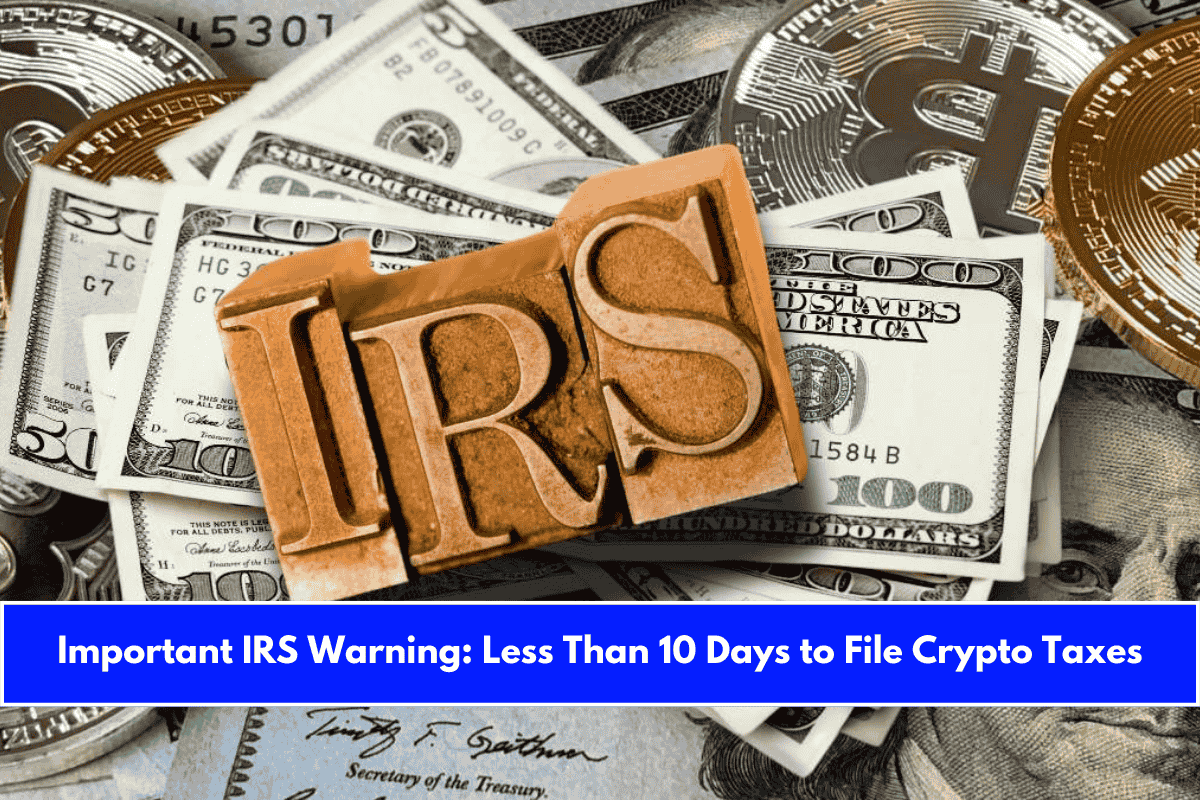The Internal Revenue Service (IRS) is reminding American taxpayers that the deadline to declare transactions involving digital assets, including cryptocurrencies, non-fungible tokens (NFTs), and stablecoins, is fast approaching.
With less than 10 days left, it’s important to know how to handle your digital assets to avoid complications with the IRS.
These assets are considered financial assets rather than traditional currencies, similar to stocks or property, and are subject to taxes. If you’ve engaged in digital asset transactions during the last fiscal year, now is the time to make sure everything is reported accurately.
The End of the DeFi Broker Rule: What Does It Mean?
One major change is the repeal of the DeFi broker rule, which was put into place during the Biden administration. This rule required decentralized finance (DeFi) platforms to report gross revenue and user data, but it sparked significant criticism for hindering innovation.
With the rule now officially withdrawn, DeFi participants are no longer required to report certain data. However, you are still obligated to report profits or losses from individual transactions.
The IRS emphasizes that, even though the DeFi rule has been lifted, the responsibility for accurate reporting still falls on taxpayers—not intermediaries or platforms.
What Digital Assets Are Taxable?
Any transaction involving cryptocurrencies like Bitcoin, Ethereum, or new projects such as Pi Network, must be reported to the IRS. Even non-profit operations, like transfers between your own wallets, need to be recorded. The IRS uses advanced tools to track blockchain transactions, so it’s crucial to be accurate when filling out your tax forms to avoid penalties.
The 2023 tax forms—1040, 1040-SR, and 1040-NR—include specific questions about digital assets. These questions are located at the beginning of the forms and require a mandatory answer of “yes” or “no,” depending on whether there was any activity with digital assets.
Tax experts recommend keeping detailed records of all transactions, including:
- Dates
- Amounts
- Counterparties
Platforms like CoinTracker or Koinly offer automated tools to help you consolidate your transactions, but the IRS advises that you manually validate the data, especially for complex DeFi operations or NFT transactions. If you need additional help, crypto tax advisors can ensure your filings are error-free.

What Happens If You Don’t Report Your Digital Assets?
Failure to declare your digital asset transactions could lead to severe penalties. The IRS has enhanced its focus on digital assets through partnerships with tech companies and automated audits. If you fail to report correctly, you could face fines ranging from 5% to 25% of the balance owed, plus accumulated interest.
In more serious cases, charges of fraud or tax evasion can be applied, which may have criminal consequences. To avoid these issues, transparency in your filings is key.
Stablecoins and NFTs: What You Need to Report
Although stablecoins are tied to fiat currencies like the US dollar, their use in lending, staking, or yield farming creates reportable obligations. NFTs must be declared if they are sold for over $600, and the treatment of these tokens depends on whether they are created, bought, or sold for commercial purposes.











Leave a Reply